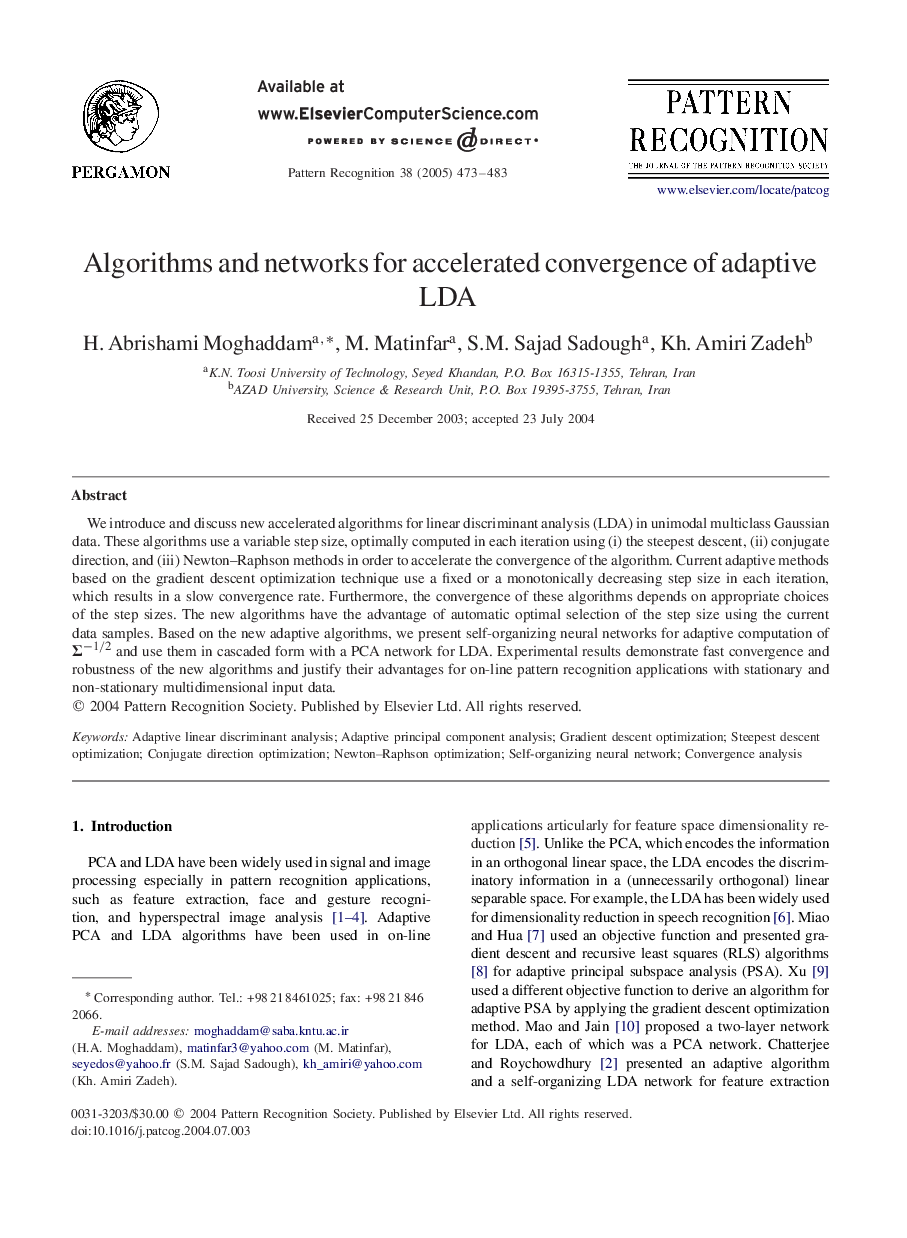| Article ID | Journal | Published Year | Pages | File Type |
|---|---|---|---|---|
| 10361215 | Pattern Recognition | 2005 | 11 Pages |
Abstract
We introduce and discuss new accelerated algorithms for linear discriminant analysis (LDA) in unimodal multiclass Gaussian data. These algorithms use a variable step size, optimally computed in each iteration using (i) the steepest descent, (ii) conjugate direction, and (iii) Newton-Raphson methods in order to accelerate the convergence of the algorithm. Current adaptive methods based on the gradient descent optimization technique use a fixed or a monotonically decreasing step size in each iteration, which results in a slow convergence rate. Furthermore, the convergence of these algorithms depends on appropriate choices of the step sizes. The new algorithms have the advantage of automatic optimal selection of the step size using the current data samples. Based on the new adaptive algorithms, we present self-organizing neural networks for adaptive computation of Σ-1/2 and use them in cascaded form with a PCA network for LDA. Experimental results demonstrate fast convergence and robustness of the new algorithms and justify their advantages for on-line pattern recognition applications with stationary and non-stationary multidimensional input data.
Keywords
Related Topics
Physical Sciences and Engineering
Computer Science
Computer Vision and Pattern Recognition
Authors
H. Abrishami Moghaddam, M. Matinfar, S.M. Sajad Sadough, Kh. Amiri Zadeh,
